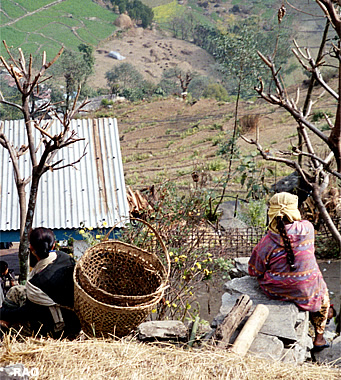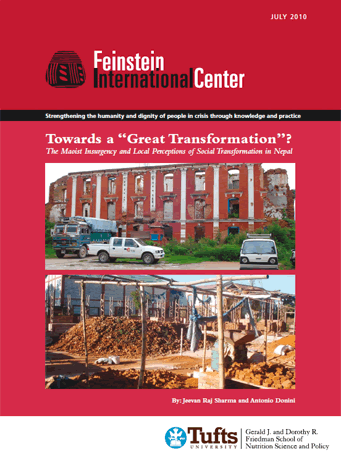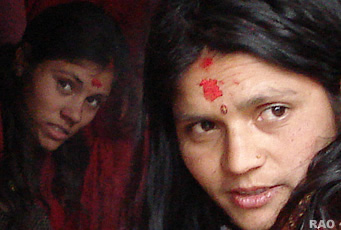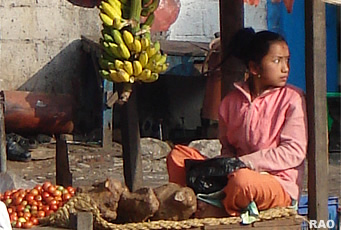 |
Nepal's
Social Life - Woman |
|
|
 |
|
Domestic
violence still common
|
 |
|
The Maoist Insurgency and Local Perceptions of Social Transformation in Nepal
|
 |
 |
| This report presents and analyzes the findings of a two-year field research on local perceptions of social transformation in rural Nepal. In particular, it presents the findings, and our interpretations of them, in a manner that can contribute not only to scholarly debate but, importantly, to current discussions on development policy choices and on the role of aid agencies. One of the first arguments that can be drawn from our fieldwork is that, alongside political transition, there are clear evidence of a qualitative "step-change" in the way Nepali society is organized that is beyond the continual or "normal" processes of incremental change that are always at work. Field evidence clearly suggests that many existing social norms and patterns are being challenged and many are being reconstructed. |
|
However, the field evidence suggests that the political economy of survival in rural Nepal has not changed dramatically. There has been no revolution at the level of livelihoods.
The poor remain poor, families receiving remittances are better off, and, in some cases, can access land that traditional landlords have abandoned. An overall land reform remains a distant aspiration. However, the combination (and sometimes the competition) of the political agency of the Maoists and social development work of civil society organizations, in parallel with the development of formal and non-formal education, has resulted in a historical transformation of consciousness.
Awareness of rights and gender has increased massively, the collective agency of women and oppressed and marginalized groups has escalated and has probably resulted in durable changes in how individuals, groups, and institutions interrelate. However, the "revolution," such as it is, has yet to make a serious dent in the structural violence that continues to characterize life in rural Nepal.
top
 |
 |
Excellent
Document
|
|
RAOnline download
|
|
|
| Contents |
Background
People’s Perception of Major Problems
Unemployment
Price increases
Low wages
Neglect from the state
Access to basic facilities
Discrimination against women
Discrimination against Dalits
Security/fear and law and order
Landlessness
Changing Livelihoods
Migration
Expansion of the market economy
Presence of the Maoists
NGOs and community organization/development activities
Dynamics of Change and Social Transformation |
Caste
Increased political agency of Dalits
Sense of Equality and Respect
Decreased discriminatory practices
Abandoning traditional practices
Women’s Position
Recognition of discrimination against women
Changes in women’s lives
Changes in women’s participation and organization
Economic Relations
The Nature of Social Transformation
Larger Meanings: From Social Reproduction to
Social Transformation? |
|
|
|
| more information |
 |
|






